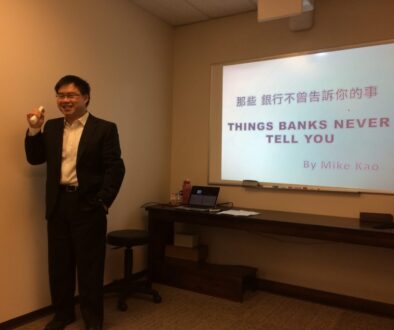Women Leadership Circle – The Morning Leader: Mentorship vs. Sponsorship Your Secret to Success
Date: September 24, 2014
Name: Women Leadership Circle – The Morning Leader: Mentorship vs. Sponsorship Your Secret to Success
![IMG_2750[1]](http://mynextgoal.files.wordpress.com/2014/09/img_27501.jpg?w=300)
![IMG_2755[1]](http://mynextgoal.files.wordpress.com/2014/09/img_27551.jpg?w=300) Presenters: Maininder Dhaliwal, Debra Hewson, Fiona Macfarlane, and John Montalbano
Presenters: Maininder Dhaliwal, Debra Hewson, Fiona Macfarlane, and John Montalbano
Women Leadership Circle (WLC) is a Vancouver board of trade program that inspires women entrepreneurs in business world to connect with other remarkable leaders. This program shares and learns secrets from other entrepreneurs in different industries. This presentation is presented by WLC to help members to differentiate mentorship and sponsorship. In addition, members will learn the experiences that influenced by the panel. Moreover, members will understand the key aspects to find mentors and sponsors.
The panel includes Maninder Dhaliwal, the Vice Present of Pacific Autism Family Centre Foundation, Debra Hewson, the CEO of Odlum Brown, Fiona Macfarlane, the CIO of Ernst and Young, and John Montalbano, the CEO of RBC Global Asset Management. Along the moderator, Lisa Martin, the presentation will be very beneficial to all young entrepreneurs who are looking for mentors and sponsors.
Key difference of Mentorship and Sponsorship
The panel defines mentorship as a sounding board or advice board. In fact, the panel defines sponsorship as the advocacy role or champion role of any industry. In the organization, mentors are the one that young entrepreneurs seek and receive directions; however, sponsors are earned from creditability.
Most of the time, mentors are the one young entrepreneurs look up to in the organization. Nevertheless, sponsors are the one young entrepreneurs need to identify and ensure their voices are heard. In addition, sponsorship is outcome based and it needs a mutual agreement from both parties.
Mentors are not as risky as sponsors because the relationship is mostly all private. In this generation, women have more mentorship ability than men, and sponsorship are vice versa.
Mentors Experience
Based on the panel’s experience, mentors provide tough feedback because they want young entrepreneurs to be successful. Mentors are required for long time commitment and relationship. Mentors help young entrepreneurs to promote their creditability and transfer their expertise to young entrepreneurs.
The panel believes mentors are required to poke holes in young entrepreneurs’ theories. This will help them to save time on research. Therefore, mentors will facilitate their connection to help others, which will lead to partners and shareholders.
Sometimes mentors’ advice will take long time to realize. Young entrepreneurs might not know the progress outcome until further in the future. Mentors help young entrepreneurs to look at long term vision and impact the future and support young entrepreneurs.
Relationship to be successful with mentors
The panel indicates some factors that will help young entrepreneurs to retain long term relationship with mentors.
- Trust
- Clear communication and expectation
- Expect time from mentors
- Respect
The panel suggests young entrepreneurs to invest time in finding mentors because young entrepreneurs are putting their brand and themselves to the mentors. Young entrepreneurs need to understand the reason “why” that forms the relationship.
Mentors are the one who will walk the process with the young entrepreneurs. It is important to show aspiration to the mentors and be flexible with each other’s needs. Young entrepreneurs need to have “desire”, “vulnerability”, and “caring” in their search for mentors.
How to find the sponsorship
The panel emphasizes the best way to find a sponsor is to achieve something that can let that sponsor look good. Sponsors are mostly who are leading in social community or industry. They are also the one who can feed the soul to the business. It is important to understand the core value before attempting to find sponsors.
Young entrepreneurs need to build creditability for sponsors. Furthermore, sponsors will recognize them. Sponsors are difficult to find comparing with mentors.
“How can you demonstrate your value to be expanded?
Sponsors are looking for people who are solution based, not problem based. Always identify a problem with a solution.
“Doing well in your job? No, doing your job to make a difference.”
Social media in mentorship and sponsorship
The panel believes social media will help mentorship and sponsorship because it will stay in touch with people in different industries. In average, social media will raise 10 times on the current connection with people. This will build a strong brand for young entrepreneurs.
“Traditionally, mentors and sponsors do not use social media; now more and more people are suing social media as values”
Improve mentorship for entrepreneurs
Most entrepreneurs are afraid to ask for mentorship. The panel is encouraging young entrepreneurs to be noticed and call for action. It is important to take a risk and jump out of the comfort zone. By challenging the pipeline of the current role, young entrepreneurs will increase the chance to be noticed.
The panel suggests all young entrepreneurs to change the traditional culture. It is essential to look at the culture. The panel believes culture is like salt water river. If there are new fishes in the salt water, those fishes will die, so in order to let those fishes survive, salt water need to change.
“By establishing a well relationship with mentors, if mentors move up, you can move up as well”
“Not build to be fair, build to win”
Benefits young entrepreneurs as mentorship or sponsorship role
There are many benefits to become mentors or sponsors. One of the biggest benefits is the learning phase. Both parties can see and experience different point of views. Mentorship and sponsorship both are two way streams. Both parties need to be benefit from each other. Becoming a mentors or sponsors can be source of pride. It will help them identify the trend of future. Both roles can force to be a better listener in multi-level culture. Moreover, it will help the organization to retrieve a better team.
Advice to have boss as mentor
The panel wants young entrepreneurs to be caution for feedback if their mentors are their boss. Feedback might not be what young entrepreneurs are looking for. The panel does not recommend young entrepreneurs to ask their bosses for mentorship.
Young entrepreneurs should look for mentors that bring different things. Therefore, the panel asks young entrepreneurs to look for many as they can. They should find mentors who are non-threatening to their industries internally and externally. Therefore, it is important to get multiple opinions.
![IMG_2756[1]](http://mynextgoal.files.wordpress.com/2014/09/img_27561.jpg?w=300) How to deal with bad mentorship
How to deal with bad mentorship
The panel indicates sometimes it is possible that people are in mentorship, but they want sponsorship instead. If mentorship is not working, it will self-select them out. The panel suggests young entrepreneurs to be open minded and try it out first. If it does not work, young entrepreneurs can move on and end the relationship.
How to ask people to be mentors
The panel suggests young entrepreneurs to be brave and ask them to become their mentors. It is also suggested to write a thoughtful letter that identifies the reason or reaching out. Provide a reason for mentors not to reject and figure out how young entrepreneurs can help mentors.
“This is not a suck up; it is showing what they can do to add values to the organization”

![IMG_2756[1] IMG_2756[1]](https://frankyang.ca/site/wp-content/uploads/2014/09/img_27561-1024x768-200x150.jpg)

